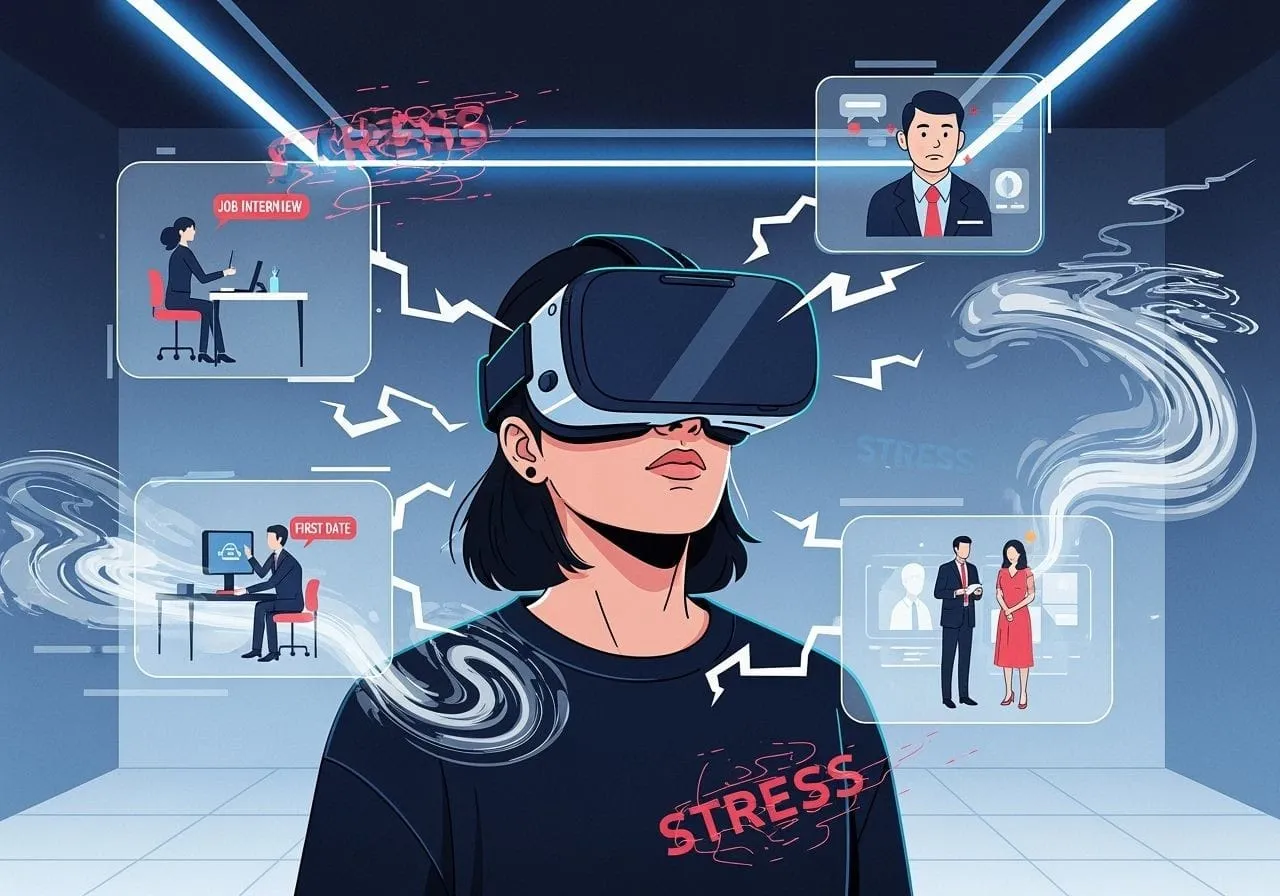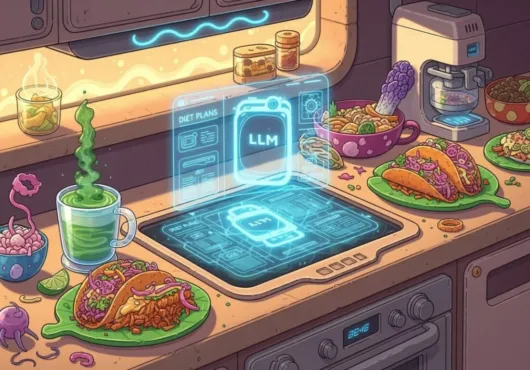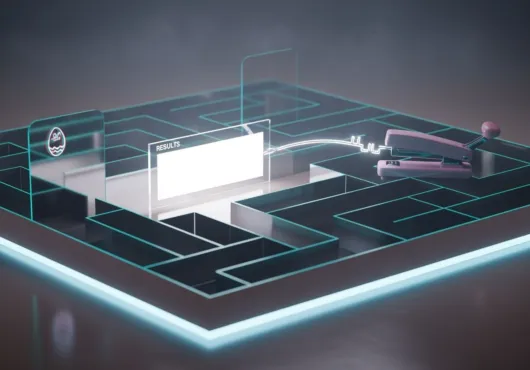Why meditate when you could actually step into the most stressful situations of your life—before they even happen? Welcome to VR training that lets you simulate job interviews, awkward dates, and those terrifying “what am I doing with my life?” moments.
So, does this preparation make us more resilient, or are we simply learning to accept failure as the norm?
Like What You Read? Dive Deeper Into AI’s Real Impact.
Keep Reading- VR stress training lets you simulate life’s nerve-wracking moments.
- While VR can help you prepare, it can’t replicate the unpredictability and discomfort.
- Too much reliance on simulations might make us forget the value of real-world failures.
Life’s Biggest Stressors, Now in Virtual Reality
We’re all familiar with the concept of prepping for big events. But VR? That’s next level. Imagine gearing up for a nerve-wracking job interview or practicing how to talk to your boss about a raise… but doing it in a fully immersive virtual world where nothing is left to chance.
Instead of just visualizing the awkwardness, you feel it. You walk in, fumble your words, and figure out how to handle the stress. In theory, the more you practice, the less likely that panic will strike when the real deal goes down.
VR Isn’t Perfect—But It’s Getting Close
Let’s be real: VR can’t actually make you more confident in the real world, but it can do something pretty close—let you rehearse the chaos. But can simulation replace actual experience? Can you really get ready for life’s mess when everything’s too neat? Sure, practicing a job interview or pretending to “succeed” at a first date in VR might give you the steps, but it won’t replicate that gut-wrenching, “I’m about to bomb this” moment. The whole point of life’s chaos is that it’s chaotic.
The problem with simulations is that they can’t capture the moment when everything goes off-script. But perhaps, that’s where the real growth happens.
The Pitfall of Over-Preparation
Too much time in VR might make life’s challenges feel like… well, a game. You’ll get good at handling the stress of talking to your boss or swiping on dating apps, but the risk is this: by trying to perfect every situation, we could get too used to control. Real life is messy. It’s unpredictable. And there’s a beauty in that mess we might lose if we get too comfortable in a machine-generated simulation.
When VR Gets Real, So Should We
Here’s where VR really screws up: it preps you for failure, but it never actually lets you fail. You get to practice the panic of a job interview, the cringe of a first date, but you’re always in a controlled space where the stakes are as high as a paper tiger. So sure, you might have your “ideal” response ready—but what happens when life decides to throw a curveball that isn’t on your pre-programmed checklist?
The truth is, VR’s greatest flaw is that it’s made for people who hate failure. It’s designed to let you control the outcome, to “train” you until your sense of real-world risk is so numbed, you forget what it means to actually lose. No, you don’t get the sweaty palms or the misstep in a real conversation. You get a sanitized version of stress, one you can always fix with a reset button. But in life, no one’s handing you a “do-over.”
So yeah, VR might be the perfect solution for people who love the idea of “training” without the actual discomfort. But when it comes to real growth, it’s just another tool that keeps you out of the real fight. And honestly, who needs another distraction?



